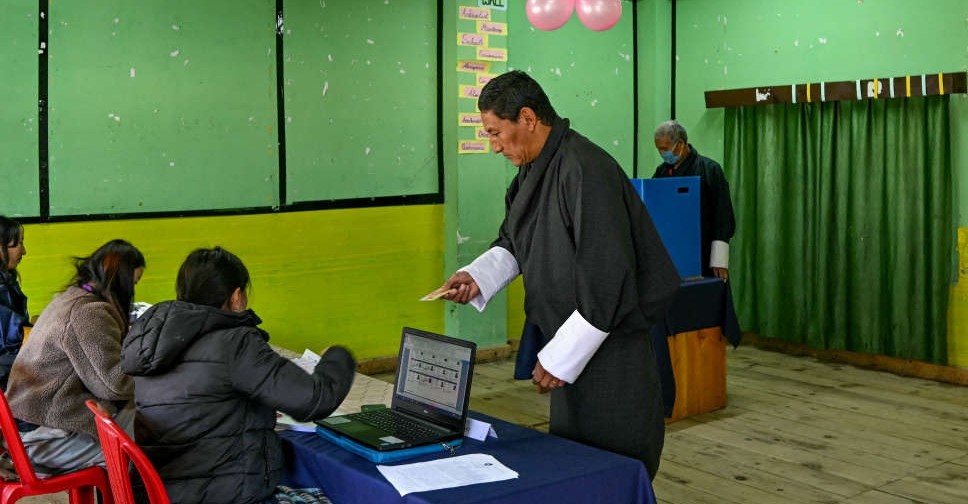
Bhutan began voting on Tuesday, the final round of national parliamentary elections that will form the Himalayan kingdom’s fourth government since democracy was established 15 years ago, with economic growth the main issue in the wake of COVID-19.
Bhutan is known for its Gross National Happiness (GNH) index, an economic gauge that takes into account factors ignored by gross domestic product measures, such as recreation and emotional well-being.
Nestled between China and India, the majority-Buddhist nation ushered in democracy with the first free vote in 2008, two years after former king Jigme Singye Wangchuck abdicated in favour of his Oxford-educated son Jigme Khesar Namgyel Wangchuck.
Election Commission of Bhutan (ECB) said voting started at 8:00 am (0200 GMT) and will close at 4:00 pm. Results are expected by Wednesday.
The country of fewer than 800,000 people, roughly the size of Switzerland, has deep economic and trade relations with its southern neighbour India, its biggest donor and economic partner.
It has no formal diplomatic relations China but is in talks with Beijing to resolve border disputes - negotiations closely watched by India, which has its own border dispute with China.
But the border issue has not been a subject of debate during campaigning.
Nearly half a million voters are eligible to choose 47 members of parliament or National Assembly from among 94 candidates fielded by two political parties – Bhutan Tendrel Party (BTP) and People’s Democratic Party (PDP), which won the primary round in November.
Both parties have similar election manifestos, in which they have vowed to boost the $3 billion economy. The country relies heavily on aid and tourism, which has failed to recover despite the scenic nation lifting pandemic restrictions in September 2022.
They share similar views on harnessing the country’s potential for hydro-electric power, boosting agricultural growth and minimising climate change risks in the world’s first carbon-negative country.
Both the BTP and PDP parties pledge to promote investment and boost foreign exchange reserves, which according to the central bank stood at $464.66 million at the end of October, compared with $759.16 million a year ago.
Analysts said their promises should be taken with a pinch of salt and few believed the parties would deliver on their promises if elected.
“People now tend to be sceptical about promises the political parties make, as they have seen that many (past) promises remained unfulfilled,” said political analyst Sonam Tshering.
In the three elections since 2008, no party has been chosen to head the government twice.
Political parties are “also aware that Bhutanese voters are much matured and discreet about whom they vote so that their votes remain secret”, Tshering said.
BTP was formed in 2022 and is led by a former bureaucrat. PDP was founded in 2007 by Tshering Tobgay, who had led the government after the elections in 2013.

 UK inquiry finds 'chilling' cover-up of infected blood scandal
UK inquiry finds 'chilling' cover-up of infected blood scandal
 Iranian President Raisi killed in helicopter accident, state media says
Iranian President Raisi killed in helicopter accident, state media says
 ICC prosecutor seeks arrest warrants for Israeli, Hamas leaders
ICC prosecutor seeks arrest warrants for Israeli, Hamas leaders
 Assange given permission to appeal against US extradition
Assange given permission to appeal against US extradition
 Israel intends to broaden Rafah sweep, Defence Minister tells US
Israel intends to broaden Rafah sweep, Defence Minister tells US




